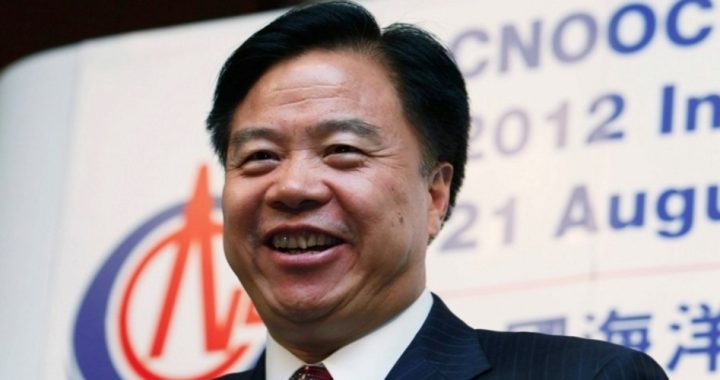
Shareholders of Canadian oil firm Nexen voted Thursday to favor a $15.1-billion takeover that would place the company into the hands of the Chinese state-owned CNOOC (China National Offshore Oil Corporation), although the merger still requires approval by the Canadian government. In a 99-percent assenting vote, shareholders approved the $27.50 per-share offer, bestowing China with its largest overseas energy acquisition ever.
Canada’s industry minister will conduct a 45-day review (which can be extended by 30 days or more) of the proposal under the Investment Canada Act, which targets non-Canadians who acquire control of an already existing Canadian business or who plan to launch a new unrelated Canadian business. According to Businessweek, the deal will likely go through:
Nearly all foreign takeovers are approved in Canada, but Canada’s Conservative government did reject Anglo-Australian BHP Billiton’s hostile takeover bid for Saskatchewan’s Potash Corp. in 2010 and the sale of Vancouver-based MacDonald, Dettwiler and Associates’ space-technology division to an American company in 2008. In the case of Potash Corp., the local Saskatchewan provincial government was against the foreign takeover of a company that controls 25 percent of the world’s supply of potash.
CNOOC has promised to retain all Nexen employees if the merger is completed, but Kevin Reinhart, Nexen’s interim CEO, believes he may soon be reporting to Beijing. “We are still working through all the details,” Reinhart told reporters following the vote. “Right now my main priority is providing support to CNOOC with respect to the regulatory process. My second objective, really, is to make sure that our employees and CNOOC are set up for success, assuming the deal closes. What my role and other roles in the organization will be, there’s a lot to deal with that over the next little while.”
Nexen runs a global operation, operating in western Canada and extending to Africa, the North Sea, the Gulf of Mexico, and the Middle East, with its most plentiful reserves grounded in the Canadian oil sands. In the second quarter of this year, the oil company churned out more than 200,000 barrels of oil a day.
CNOOC and other large Chinese energy conglomerates have pursued numerous purchases of oil and gas assets in North America as part of a global blueprint to capitalize on resources needed to supply China’s expanding energy needs. Currently, the Asian economic powerhouse consumers a stunning 10 million barrels of oil per day, while demand is projected to spike some 50 percent by the end of the decade.
Moreover, by 2035, China is expected to become the largest oil consumer in the world, prompting a flurry of pursuits to secure North American reserves. Over the past 10 years, the Chinese government has sought a number of North American oil reserves, including one in 2005 where CNOOC tried to purchase California-based Unocal for almost $20 billion, a deal that was thwarted by the U.S. government due to national security concerns.
However, Chinese oil conglomerates have secured partial holdings in oil and natural gas companies located in Texas, Colorado, and Wyoming through an agreement with Chesapeake Energy Corporation. In 2009, China bought minority stakes in deep-water wells in the Gulf of Mexico, and recently it secured a one-third stake from Devon Energy for holdings in Ohio, Michigan, Louisiana, and Oklahoma.
While the pending takeover of Nexen is a notable affair for Canada and China, the United States also has a stake in the development, says one Republican congressman. “With the purchase of Nexen, China will control a major North American oil company,” Rep. Lee Terry (R-Neb.) wrote in a blog post for The Hill. “China will firmly be positioned in our front and backyard.” However, Terry adds, there is a veritable solution to China’s ever-expanding pursuit for a global energy monopoly:
There is a simple way for the United States to maintain control of our energy future and our competitive edge over the Chinese: We can get moving quickly on the Keystone XL pipeline. Approving this pipeline would ensure that North Americans control North American oil. This is why I am very disappointed that President Obama has not allowed Keystone to move forward.
The president could immediately approve the application before the State Department, which would allow construction of the Keystone pipeline to begin as soon as possible. But it seems he would rather wait until after the election before making this strategically important decision.
In April 2011, Rep. Terry unveiled Congress’ first bill to grant TransCanada permission to begin construction of the Keystone XL pipeline. “Keystone not only represents thousands and thousands of jobs for skilled Americans and a major boost to the surrounding communities,” the Nebraska congressman noted, but “it ensures that the U.S. and Canada remain partners in the operation and maintenance of North American oil.”
Furthermore, it allows the U.S. to protect its own energy security, by ensuring that North Americans will maintain control of North American oil. Currently, crude oil from Canadian reserves is funneled along U.S. highway and railroad systems, but the Keystone pipeline extension would transport the oil in a faster and more efficient manner — not to mention, pipeline transportation is far more friendly to the environment.
President Obama has approved construction of TransCanada’s Gulf Coast Project, the southern portion of Keystone which runs from Cushing, Oklahoma to Port Arthur, Texas. Unfortunately, the president has buried the northern portion of the pipeline in meticulous studies to appease environmental constituents and other Democratic supporters. Consequently, the CNOOC-Nexen deal should come as no surprise.
“Can we blame Canada for meeting with outside buyers while the president and Senator [Harry] Reid continue to play political games and hold North American oil hostage to election slogans? Of course not,” Terry asserts. “Now is the time to show our commitment to our neighbor to the north and our own energy security by moving forward with the construction of the Keystone pipeline.”
Photo: Chairman of CNOOC Ltd. Wang Yilin, speaks at a company event in Hong Kong, Aug. 21, 2012: AP Images



